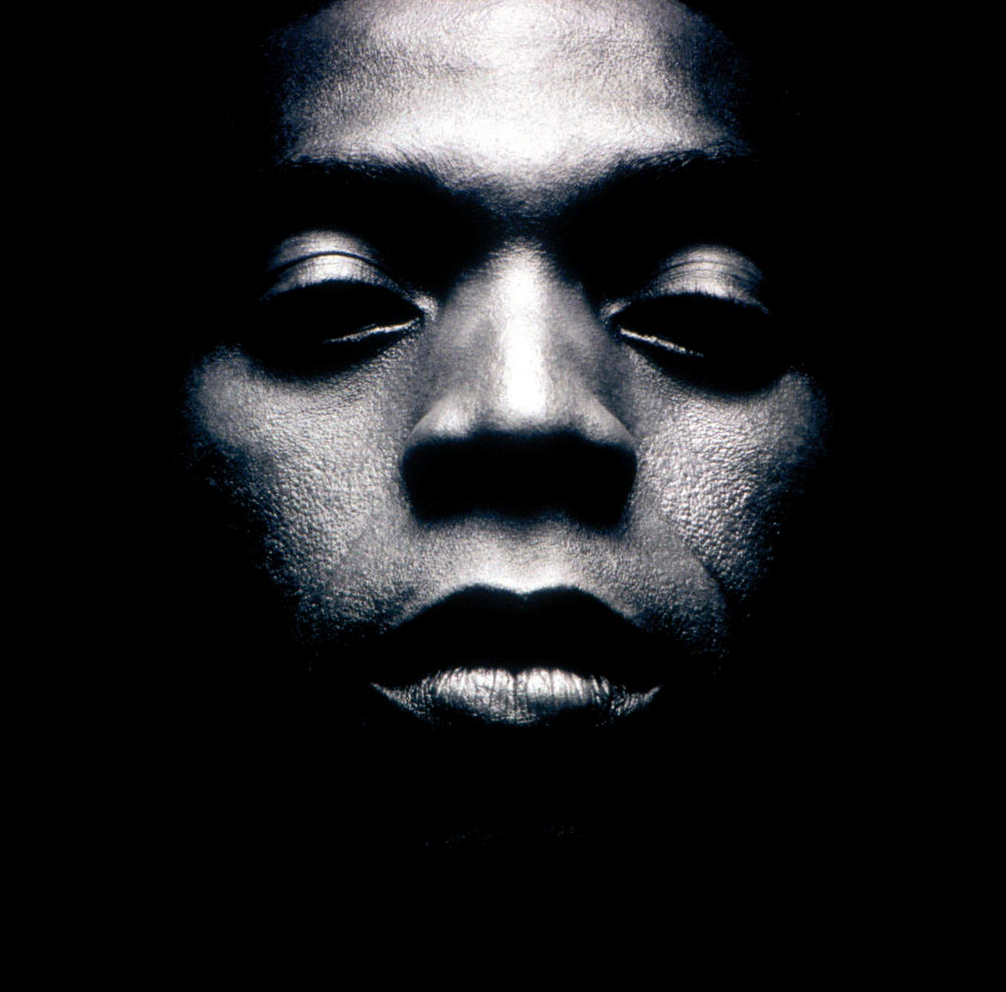NEW RELEASE
Ghosteen: Nick Cave and the Bad Seeds CONTENTS
- INTRO: The eloquence of Nick Cave’s grief
- PLAYLIST: Ghosteen on YouTube and Spotify
- PUBLICATION: The Red Hand Files website and Cave on regret
- REVIEW: From Uncut Magazine
- About Kurated

GHOSTEEN: NICK CAVE AND THE BAD SEEDS
The eloquence of Nick Cave’s grief
My take on Nick Cave’s moving and beautiful new album Ghosteen is entirely subjective. I’m going mostly on first impressions – sound and ambience – plus some familiarity with Cave’s personal struggles.
I hardly know his work. What little I’ve heard over the 35 years he’s been recording hasn’t had much pull. I’ve been put off by the dark artistic posture and forboding in the compositions which are typically sung in his signature baritone.
Hearing Ghosteen has shifted my opinion. I may have been wrong about Cave. I’m sure his work has evolved and – for the first time – we’re mapping shared territory.
Cave’s son’s death
Four years ago, Cave’s 15-year-old son, Arthur, died in an accident. I’ve read some of his thoughts and comments on this tragedy. What I’ve discovered – and what’s drawn me to him – is an eloquent fellow traveller on the difficult and complex path of grief.
As many of you know, my first-born daughter took her life in 2011. No day goes by not feeling that. To find a welcoming sonic balm and emotional space that resonates with this understanding is a gift.
Ghosteen is deeply comforting. It is in turns sad, hopeful, dark and kind. It’s a thoughtful work from a man who feels and thinks profoundly.
Running 72 minutes long, Ghosteen feels complete and unhurried. Its themes are balanced and not solely focused on Arthur’s death. They are imbued with the understanding of a courageous artist who lays bare, examines and describes the heart and bone of this part of our human journey. In doing so, the album speaks beyond the loss of a child and mourns for all loss and all sadness.
Definition: What “ghosteen” means
According to Wikipedia: The Ghosteen album title is a combination of the word “ghost” and the Irish-language suffix “ín” (anglicised as “een”), which translates to English as “little,” “small” or “benevolent.” However, the title has often been misinterpreted as a portmanteau of “ghost” and “teen.”
THE RED HAND FILES AND CAVE ON REGRET
A little more than a year ago Cave launched the Red Hand Files website. It’s a candid, personal and fun Q&A discussion between writer and audience. Last week he released issue # 75.
In a previous issue he offers this insightful consideration about regret:
“There is always a temptation to take the position that one has no regrets. There is a death-row defiance that stares down the accusation of the past and says, ‘I am what I am and be damned.’ We feel that to harbour regrets dishonours the very place to which we have arrived. But, it can be helpful to remind ourselves that these regrets are intimations informing us that we have developed sufficiently to perceive the nature of our past shortcomings.
… Perhaps it is useful to see our lives as a series of failed or abandoned dreams, but to also recognize that these dreams are the very architecture of our humanity; to lovingly accept our shortcomings and lay them to rest in the knowledge that growth and regret go hand in hand, as do failure and potentiality.
… Over time I have learned that the opportunity to say goodbye is the ultimate privilege. It can serve as a sigh of remembered love, a reparative breath that precedes an adjournment, a pause of gratitude before you inhabit the next you.”
Reviews
Since its release in October, Ghosteen has received high praise from the music press and daily newspapers. Various reviewers suggest it’s Cave’s best work. MOJO, Rolling Stone, The Observer and The Guardian are just a few of the publications that have written incisive and positive reviews. UK music magazine Uncut gave it 4.5 stars.
PLAYLIST
REVIEW

GHOSTEEN
A haunting search for peace of mind
By Alastair McKay / Uncut / 15 November 2019
It’s tempting, when a record unfolds like a sermon, to concentrate on the words. And it’s true: on Ghosteen, Nick Cave has surpassed himself, redefining the shape and purpose of his writing. By conventional standards, these aren’t songs at all. They’re ruminations, fairy stories, misremembered dreams, visions. They scarcely bother with the formalities. There are few choruses, just occasional repetitions of phrases or lines: “I think they’re singing to be free,” or “It’s a long way to find peace of mind.”
What is it about? Faith mostly, death often, and the moving walkways that transport people between those unmappable destinations. Cave has more questions than answers, but he frames them in such a way that the indeterminate nature of things becomes the point, and even a cause of comfort. Beyond that, he’s celebrating the purpose of songs themselves, as in the opening track, “Spinning Song”, a swirling, wheezy thing that squeezes a jelly-haired Elvis into a strange parable owing as much to Enid Blyton’s Faraway Tree as it does to the Old Testament.
It’s possible, of course, that the song is even more self-involved than that, because it is a song about a song. Let’s play along, and imagine that the root of this mystery is Cave’s “Tupelo”, that ferocious anthem in which the birth of the King became an elemental act of Creation. “Tupelo” has the manners of a Cave from a different church, the black rain, the sandman, the eggless hen, the crowless cock. But listen to him now, on “Spinning Song”. “Once there was a song,” he murmurs, “the song yearned to be sung.” And by the end of the recitation, after this black-jelly Elvis King has crashed into Vegas and broken the heart of his queen “like a vow”, and a feather has spun up into the sky, Cave is addressing the listener directly. “And you’re sitting at the kitchen table, listening to the radio…” It would, of course, take a bold radio station to play this extraordinary tune: “Spinning Song” is not designed for heavy rotation. But wait, hold that computerised playlist, the singer is delivering the goods, right at the end: “And I love you,” he is singing. “Peace will come.”
Those are the words, but as always, the Bad Seeds have evolved musically. On Push The Sky Away and Skeleton Tree, they adapted to Cave’s monochromatic demeanour, colourising the backgrounds with more subtlety, less violence. Skeleton Tree in particular was unvarnished, medium rare, and Ghosteen continues in that vein. It is raw, but also synthetic. There are a number of very long songs, verbal rambles, but the music fills in, disturbing the melancholy of Cave’s piano with static interruptions that owe as much to Cave and Warren Ellis’s film soundtracks as they do to the Bad Seeds’ more conventional songcraft. On the title track, a 12-minute epic that references The Moony Man (a Japanese folk tale adapted for manga with added rocketships) there are echoes of Bowie’s Low, but also of the way Bill Fay channels nagging introspection into songs that have the yearning, the humility and the persuasive power of hymns.
All the Bad Seeds are credited, but it’s hard to get beyond the keyboards. Both Cave and Ellis are credited on synthesiser, and both do backing vocals. Ellis adds loops, flute and violin. None of which prepares you for the sound that they make. Those synths sound retro rather than futuristic, and the clips of reversed vocals give the whole thing the aura of a transmission from a distressed planet. If it were a book it would be Michel Faber’s The Book Of Strange New Things. But as these disturbances are cinematic, it’s hard to escape the orbit of David Lynch.
Of course, there is no pastiche-ing here, no ironic Orbison. The Bad Seeds do not play no rock’n’roll. Cave’s atmospheres are too airless for that. But there are jarring moments, neon-candy lightning flashes in the black ambience. Take the moment on “Ghosteen” where Cave sings “dancing, dancing all around” and the song suddenly swirls and reboots itself. “Here we go,” Cave says quietly, and the tune turns a page, and out of the turbulence comes a verse about the fairytale Three Bears (Goldilocks is notable by her absence). Why the Three Bears? Because fairytales are nasty and brutal, tutoring caution even as they comfort and entertain. And because Ghosteen has at its centre a dead child, a spirit or a little ghost, who sometimes narrates. In this context, the childish presence is wise, and is trying to soothe the pain of those who are left behind, so the imagery is inverted. Childishness becomes an invitation to wonder and to hope, and to live without concern for shortening horizons. “And baby bear,” Cave sings, prompting thoughts of Iggle Piggle’s journey at the conclusion of every episode of In The Night Garden, “he’s gone to the moon in a boat.”
Cave’s life has been marked by personal tragedy, and his recent work – his embrace of the essential decency of the crowd in his live shows, his emergence as an agony uncle to confused souls on his Red Hand Files Q&As – is usually viewed in that light. Nothing changes that, and there’s no escaping the profound darkness that envelops Ghosteen. You could hang autobiographical intent on the beautiful “Waiting For You”, which drapes a sense of loss and anticipation over a song that is as painful as it is literally dreadful. The singer drives through the night to a beach, waiting for someone to return. By the end, the exhausted narrator is encountering a Jesus freak on the streets, saying, “He is returning.” Cave concludes: “Well, sometimes a little bit of faith can go a long way.” And what of “Sun Forest”, a gorgeous, melancholy thing, apparently about a child’s ascension to heaven, punctuated by images of crucifixion, burning horses, black butterflies, beautiful green eyes, and the child beaming back a message of hope: “I am here beside you, look for me in the sun”?
“Ghosteen Speaks” is no less haunted, no less haunting. The narrator, at the end, is a spirit trying to make sense of their own funeral. “I am beside you,” they sing, “look for me,” before wondering about the purpose of the ceremony. Why are these people gathered together? “I think they’re singing to be free… to be beside me.”
You could make all of this about the singer’s misfortunes. But that would be reductive, and a shame, because Cave’s journey on Ghosteen – by boat, by ominous train, by car or heavenly staircase – is a grand tour in search of common ground. He is looking for the universal, with or without Jesus. His version of faith includes the bald observation in “Fireflies” that we are no more than “photons released from a star”.
It is, perhaps, a tough sort of faith that concludes that “there is no order here and nothing can be planned”. But the beauty of Ghosteen is the way it inhabits the darkness and still manages to harvest optimism. It is extreme stuff, singular in its design, ruthless in its execution. At the end, in “Leviathan”, Cave comes close to delivering a chorus, albeit in a song that flickers like a hallucinatory dream. There is a kid with a bad face at the window, a wild cougar killing by day, a house in the hills with a tear-shaped pool. “Everybody’s losing somebody,” Cave sings. “It’s a long way to find peace of mind.”
Preview YouTube video Ghosteen – Nick Cave and The Bad Seeds (Global Premiere)
If this is the first issue you’re receiving, it’s because I thought you might be interested in the music, the topic or both. Let me know.
Stay tuned,

15 December 2019





